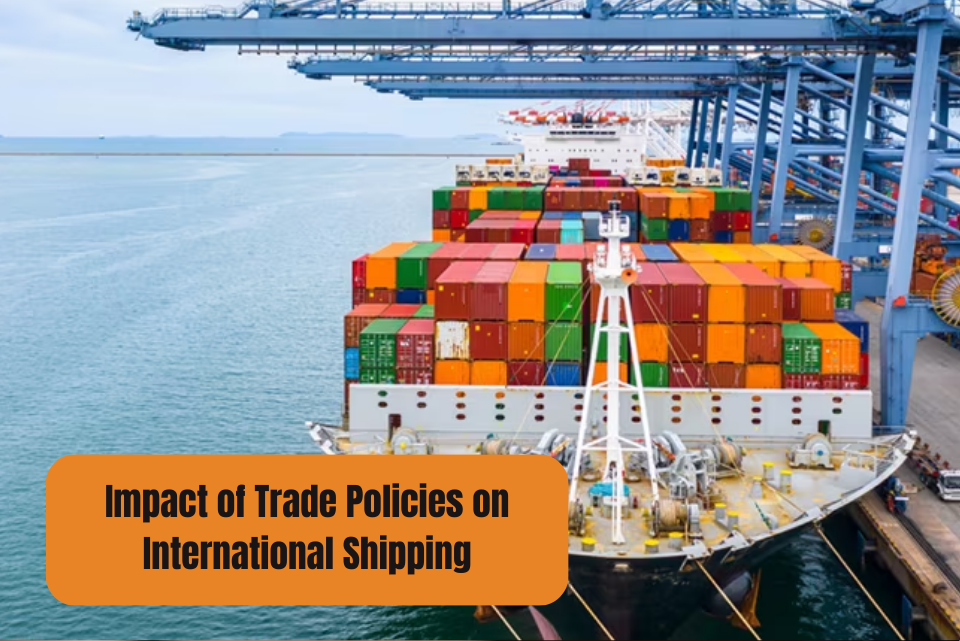International shipping stands as the backbone of global commerce, bridging the gap between nations and allowing goods, services, and ideas to flow across borders. Dive deeper into this subject, and it becomes clear that trade policies significantly shape the currents and tides of international shipping. From customs duties to shipping regulations, these policies act as navigational beacons for logistic enterprises.
Trade Policies: The Compass of Commerce
Trade policies refer to the regulations and tariffs that countries impose on incoming and outgoing goods. These can range from Free Trade Agreements (FTAs) that facilitate easy trade between two countries, to protectionist measures that limit imports to protect local industries.
Tariffs and Duties: Tariffs are taxes imposed on imported goods, and they play a pivotal role in the cost structure of international shipping. Higher tariffs can make goods more expensive and less competitive in the importing country, affecting demand and the volume of shipping.
Import and Export Controls: Some goods are subject to controls either due to their nature (e.g., hazardous materials) or due to their strategic importance (e.g., military equipment). These controls can require additional documentation and procedures, potentially slowing down shipping processes.
Free Trade Agreements: FTAs promote trade between countries by reducing or eliminating tariffs and import quotas. This can lead to a surge in shipping activities between the involved countries as goods flow more freely and affordably.
The Direct and Indirect Effects on Shipping:
Volume of Trade: When tariffs decrease or trade barriers are lifted, the volume of trade between countries often increases. This uptick in trade volume can be a boon for shipping companies, demanding more ships, containers, and logistics operations.
Shipping Routes: Trade policies can redirect the major trade routes. For instance, if a country signs an FTA with a new partner, shipping routes may need to adjust to cater to this change, affecting the operational strategies of shipping companies.
Operational Costs: Stricter regulations, documentation, or import controls can increase the operational costs for shipping lines. They might need to invest in more advanced tracking systems, ensure additional staff training, or deal with extended waiting times at ports.
Infrastructure Investment: As the trade volume increases, there’s often a need for better port facilities and infrastructure. This can lead to investments in larger ports, advanced cranes, and other infrastructure to handle the increased traffic.
Shift in Market Dynamics: New trade policies can shift the balance of power in the shipping industry. If a significant market opens up, it might attract more players, leading to increased competition and potentially driving down prices.
A Real-World Example: The U.S.-China Trade War
The U.S.-China trade war, which started around 2018, serves as a compelling study. As both nations imposed tariffs on each other’s goods, it led to disruptions in trade volumes and routes. Some companies rerouted their supply chains to avoid tariffs, leading to the so-called ‘trade diversions’. This had ripple effects on the global shipping industry, with some routes seeing decreased traffic, while others, especially in Southeast Asia, experienced a surge as companies looked for alternative sourcing destinations.
Conclusion
The intricate web of international shipping is continuously affected by the shifting sands of trade policies. These policies not only determine what goods are traded but also influence the how, when, and where of the trade. For shipping companies and logistics providers, staying abreast of these changes is crucial to navigate successfully in the complex waters of global commerce.
For consumers and businesses alike, understanding the impact of these policies can offer insights into potential changes in pricing, availability, and delivery times for goods and services. In a globalized world, the ripples of a policy change in one nation can spread far and wide, making the study of international shipping and trade policies more relevant than ever.



